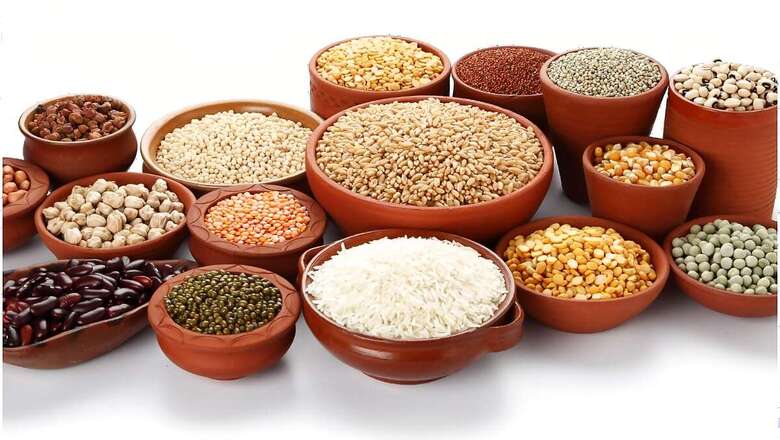
views
Pulses are a staple part of the diet in most Indian households. They are the seeds that grow inside pods of legume plants and are a rich source of protein dietary fibre, essential vitamins and minerals. Pulses contain antioxidant, anti-inflammatory and anti-cancer properties. They are also good for heart health, blood pressure and blood glucose levels. Mentioned below are five such pulses.
1. Dal
Dal or split pulses are one of the most common dishes served with rice or chapatis in Indian households. Pulses like Masoor, Urad, Moong and Bengal gram are used to make soupy dishes. They are a good source of protein, fibre, carbohydrates, vitamins such as B-complex and minerals like iron, magnesium, zinc and calcium. Pulses also contain phenolic compounds such as flavonoids that have antioxidant, anti-inflammatory, and anti-tumour properties. They have a low glycaemic index and are good for patients with high blood sugar levels.
2. Kabuli chana
Chickpeas or garbanzo beans are known as Kabuli chana, as it was originally brought to India from Afghanistan. Chickpea curries are famous for their strong aroma and taste and are consumed with rice and Indian flatbreads like Naan. They are rich in dietary fibre, protein, vitamins A, C and E, essential minerals. Isoflavones of chickpeas have potential protective effects on the heart, bones, brain, and may prevent cancer.
3. Kala chana
Brown chickpeas, also called Kala chana and Bengal gram, belong to the same family as Kabuli chana but are darker and smaller. Kala chana is softened by soaking in water and are either consumed raw or cooked with pumpkins or banana flower. The health benefits of Kala chana are similar to Kabuli chana.
4. Rajma
Rajma masala and Rajma chawal, made with red kidney beans or Rajma, are regularly consumed in North Indian states. Rajma is a rich source of protein, dietary fibre, carbohydrates, and vitamins and minerals. Its fibre content can help in weight loss. Rajma polyphenols also have anti-cancer properties.
5. Matar
Peas or matar is used in a variety of recipes like curries, dal and other dry vegetable preparations. Matar is rich in protein, vitamins, minerals and fibre. They are good for the digestive system and have a low glycaemic index.
Read all the Latest News, Breaking News and Coronavirus News here




















Comments
0 comment